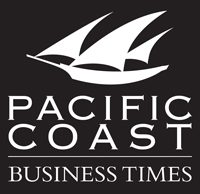Op/ed: You must tell your employees about 401(k) fees
By Peggy Hesse on February 17, 2012
Would you like your employees to have an extra $600,000 each for retirement?
Probably you would. Yet if you have a 401(k) pension plan for your company, you may unwittingly be significantly reducing the amount of money your employees will have for retirement simply because your plan’s fees and expenses are too high.
Let’s say your plan’s administrator charges a 1.5 percent per annum fee and that you anticipate a return of 7 percent on investments over 40 years. An employee who initially invests $12,000 in the plan and invests that same sum each year for the next 40 years will have about $1.8 million to fund her leisure years. That’s because the true return is 5.5 percent (7 percent minus 1.5 percent).
If that same plan had an administrative fee of only 0.5 percent per annum, the same employee could retire on $2.4 million — a difference of $600,000.
Fiduciary Responsibility
As a small-business owner, you have a fiduciary responsibility to your employees for the 401(k) program you set up on their behalf. Essentially that means your plan needs to be in the best interest of your employees.
If the fees and expenses for the plan are too high, the plan may not be in the best interest of its participants. That could create a liability problem for you, and a disgruntled employee—especially one who is no longer with your organization—could sue.
Even major companies such as Wal-Mart and Caterpillar have been successfully sued by their employees because of problems with their retirement plan fees.
In the past, employers — especially small businesses — often had difficulties ascertaining the fees in the various 401(k) plans they were considering. The Department of Labor, however, has ruled that employers must tell employees how such fees affect their pension plans.
As of July 1, plan providers must clearly describe their fees to employers, also known as plan sponsors. Furthermore, the providers must show sponsors how their plans performed historically compared to certain benchmarks.
Plan sponsors then must share this information with 401(k) participants no later than Aug. 30, 2012. The Internal Revenue Service may penalize providers who do not follow these guidelines.
Plan Management Fees
Generally, three types of fees and expenses are associated with 401(k) plan management:
• Plan administration fees. These include recordkeeping, accounting, legal services and other expenses to cover the administration of the plan. Usually, the more services the plan provides, the higher such fees. Sometimes the employer may cover the fees, or they may be allocated to the participants according to the amount invested.
• Investment fees. Typically the largest component of a plan’s fees, they cover the management of investments. The plan provider deducts them directly from a participant’s investment returns.
• Individual service fees. If a participant takes out a loan from his 401(k) or stipulates certain investment options, he may have to pay a service fee.
Other costs may include charges for buying and selling of shares, maintenance of the account and furnishing statements. Furthermore, the investment vehicles that compose the plan may themselves have fees.
Selection Criteria
Employers offering 401(k) plans are obligated to review these charges. Note that just because one 401(k) plan has higher fees than another does not necessarily mean that the lower-fee plan is a better retirement vehicle. You also need to compare plan histories and evaluate investment risk and returns as well as plan management.
The Employment Retirement Income Security Act stipulates that employers must:
• “Establish a prudent process for selecting investment alternatives and service providers,
• “Ensure that fees paid to service providers and other expenses of the plan are reasonable in light of the level and quality of services provided,
• “Select investment alternatives that are prudent and adequately diversified, and
• “Monitor investment alternatives and service providers once selected to see that they continue to be appropriate choices.”
As mentioned earlier, you — the employer — have a fiduciary responsibility to the participants in your 401(k) program. To make sure that you are acting in the best interest of participants, you may want to contract with a professional investment adviser to oversee selection of the plan and monitor its performance. Doing so may minimize your liability. Your certified public accountant often can help you with such arrangements.
• Peggy Hesse is a certified public accountant, a vice president at Lapp, Fatch, Myers & Gallagher in Santa Maria, and a member of the California Society of CPAs. Contact her at [email protected] or (805) 934-0015.












